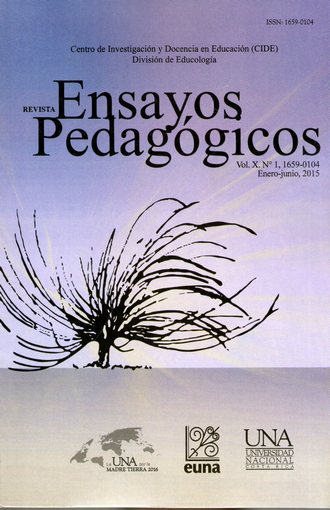Warisata: A Genealogy of Education from the Suma Qamaña
DOI:
https://doi.org/10.15359/rep.10-1.1Keywords:
indigenous education, community education, good living, Bolivia, WarisataAbstract
This essay aims to establish a relation of continuity between the pedagogy supported by the leading exponents of the experience of the ayllu school Warisata and the current educational reform driven by the government of Evo Morales in Bolivia. Political positions by the identification of an enemy are analyzed, as well as the integration of pedagogical practice and its link with the community, territorial and practical aspects. It works mainly with books written by Elizardo Pérez Warisata. The Ayllu school and Carlos Mostajo The Taika. Theory and practice of ayllu school, on one hand, and the Law on Education
References
Barcena, F. (2012) Entre generaciones. Notas sobre la educación en la filiación del tiempo. Rosario: Homo Sapiens.
García Linera, A. (2009) La Potencia Plebeya. Acción colectiva e identidades indígenas, obreras y populares en Bolivia. Bogotá: Siglo del Hombre Editores y CLACSO.
Mariategui, J. C. (1971) Aniversario y balance. En Ideología y política. Lima: Biblioteca Amauta.
Ministerio de Educación (2012) Currículo Base del Sistema Educativo Plurinacional. Documento de trabajo. Revista Educación y ciudad Nº 22, páginas 57-80. Bogotá: IDEP.
Ministerio de Planificación del Desarrollo (2007) Plan Nacional de Desarrollo. “Bolivia digna, soberana, productiva y democrática para Vivir Bien”. La Paz: Artes Gráficas Sagitario.
Mostajo, C. S. (1992) La Taika. Teoría y Práctica de la Escuela Ayllu. La Paz: G.U.M.
Pérez, E. (1992) Warisata. La escuela ayllu. La Paz: Talleres gráficos Hisbol.
Pineau, P. (2007) La escuela como máquina de educar. Buenos Aires: Paidos.
Quintar, E. (2005) La esperanza como práctica. La práctica como ámbito de construcción de futuro. Revista Interamericana de Educación de Adultos N° 2, páginas 250-253. México: CREFAL.
Wainsztok, C. (2013) El concepto de comunidad en nuestras aulas de la CELAC. Solidaridad Global N° 22, páginas 34-41. Villa María: Universidad Nacional de Villa María.
Downloads
Published
How to Cite
Issue
Section
License
Ensayos Pedagógicos is subscribed to the Attribution-NonCommertial-NoDerivatives 4.0 International Creative Commons Licence, which allows both authors and readers to freely download, store, copy, and distribute the final approved publisehd version of the manuscript (post-print) as long as this is done without commercial purposes, no derivative works are generated, and the source and author are mentioned. As well, Ensayos Pedagógicos declares that authors will remain the rightful owners of the copyrights of their work in perpetuity.







